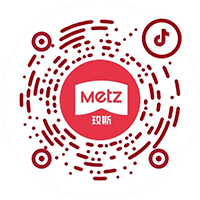Understanding Nutrient-Rich Dog Food: A Guide for Pet Owners
When it comes to your dog’s health, the food you choose plays a pivotal role. Nutrient dog food is designed to provide all the essential nutrients required for your pet's growth, development, and overall well-being. But what exactly qualifies as nutrient-rich dog food? This type of food typically contains a balanced mix of proteins, fats, carbohydrates, vitamins, and minerals, ensuring that dogs r
2025/09/15
When it comes to your dog’s health, the food you choose plays a pivotal role. Nutrient dog food is designed to provide all the essential nutrients required for your pet's growth, development, and overall well-being. But what exactly qualifies as nutrient-rich dog food? This type of food typically contains a balanced mix of proteins, fats, carbohydrates, vitamins, and minerals, ensuring that dogs receive comprehensive nutrition.
Protein is a vital component of nutrient dog food, as it supports muscle development and maintenance. Look for high-quality protein sources, such as chicken, beef, or fish, which are crucial for your dog’s health. Additionally, fats play an important role in providing energy and supporting skin and coat health. Omega-3 and Omega-6 fatty acids are particularly beneficial and can often be found in fish oil or flaxseed.
Carbohydrates are another essential ingredient in nutrient dog food. They provide a quick source of energy and contribute to digestive health through fiber. Whole grains, sweet potatoes, and peas are excellent carbohydrate sources that can enhance your dog's diet. Furthermore, vitamins and minerals are necessary to support various bodily functions, including immune response, bone health, and overall metabolic processes.
When selecting nutrient dog food, consider your dog’s specific life stage and health needs. Puppies require different nutrient profiles compared to adult or senior dogs. Nutrient-rich dog food for puppies will typically contain higher levels of protein and fat to support their rapid growth. Conversely, senior dogs may benefit from lower calorie options, with added joint-supporting ingredients, such as glucosamine.
It’s also important to be mindful of any food allergies or sensitivities your dog may have. Some dogs may react poorly to common ingredients like grains or certain proteins. In such cases, hypoallergenic or limited-ingredient diets might be suitable options, allowing you to provide the necessary nutrients without compromising your dog’s health.
Lastly, always consider the feeding guidelines and portion sizes recommended for your dog’s weight and activity level. Overfeeding, even with nutrient dog food, can lead to obesity and associated health issues. Regularly consulting with a veterinarian can help you tailor your dog’s diet to their specific needs and ensure they are receiving all the essential nutrients they require.
In summary, understanding the components of nutrient dog food is crucial for pet owners who wish to provide their dogs with a balanced and healthful diet. By prioritizing high-quality ingredients and considering your dog’s unique requirements, you can help ensure a long, healthy life for your furry companion.
Protein is a vital component of nutrient dog food, as it supports muscle development and maintenance. Look for high-quality protein sources, such as chicken, beef, or fish, which are crucial for your dog’s health. Additionally, fats play an important role in providing energy and supporting skin and coat health. Omega-3 and Omega-6 fatty acids are particularly beneficial and can often be found in fish oil or flaxseed.
Carbohydrates are another essential ingredient in nutrient dog food. They provide a quick source of energy and contribute to digestive health through fiber. Whole grains, sweet potatoes, and peas are excellent carbohydrate sources that can enhance your dog's diet. Furthermore, vitamins and minerals are necessary to support various bodily functions, including immune response, bone health, and overall metabolic processes.
When selecting nutrient dog food, consider your dog’s specific life stage and health needs. Puppies require different nutrient profiles compared to adult or senior dogs. Nutrient-rich dog food for puppies will typically contain higher levels of protein and fat to support their rapid growth. Conversely, senior dogs may benefit from lower calorie options, with added joint-supporting ingredients, such as glucosamine.
It’s also important to be mindful of any food allergies or sensitivities your dog may have. Some dogs may react poorly to common ingredients like grains or certain proteins. In such cases, hypoallergenic or limited-ingredient diets might be suitable options, allowing you to provide the necessary nutrients without compromising your dog’s health.
Lastly, always consider the feeding guidelines and portion sizes recommended for your dog’s weight and activity level. Overfeeding, even with nutrient dog food, can lead to obesity and associated health issues. Regularly consulting with a veterinarian can help you tailor your dog’s diet to their specific needs and ensure they are receiving all the essential nutrients they require.
In summary, understanding the components of nutrient dog food is crucial for pet owners who wish to provide their dogs with a balanced and healthful diet. By prioritizing high-quality ingredients and considering your dog’s unique requirements, you can help ensure a long, healthy life for your furry companion.
Key words:
Contact Us
Address:
No. 22, Jingxing Road, Economic and Technological Development Zone, Nantong, Jiangsu Province.
E-mail:
panghuiqiang@metzpet.com
Contact Phone:
+86-18862996617














